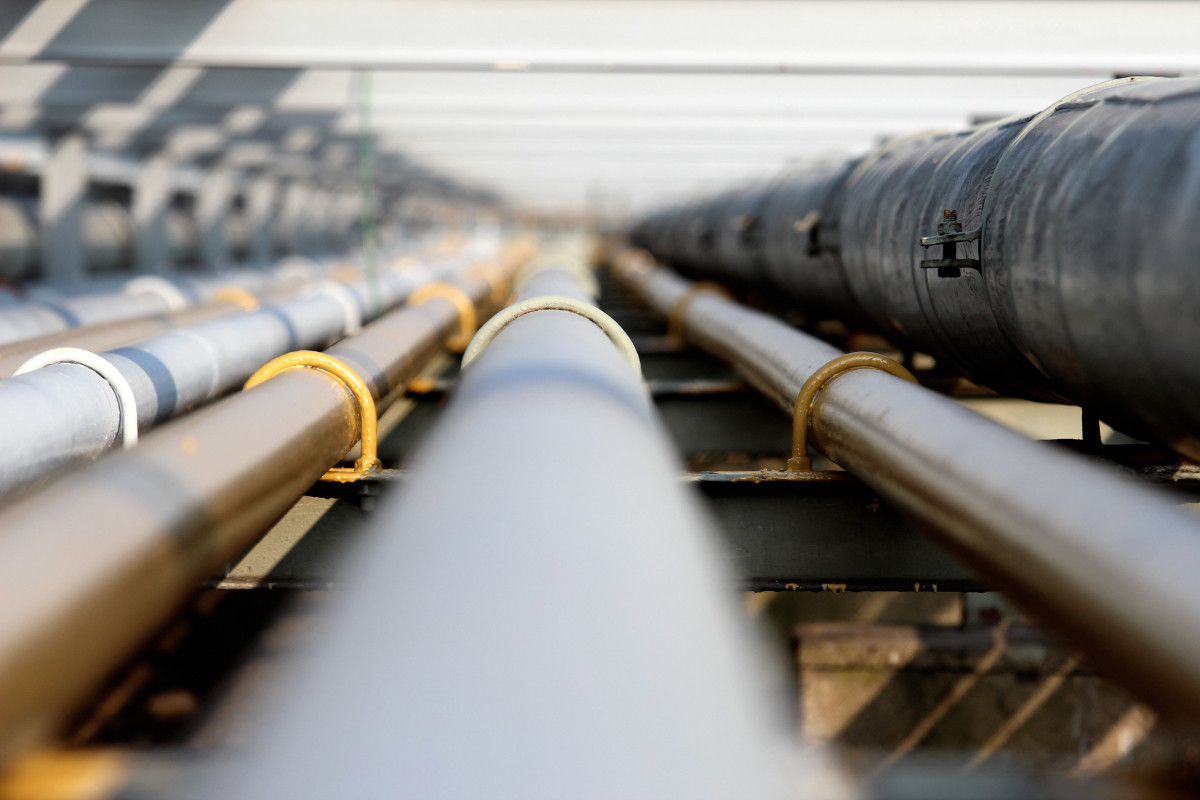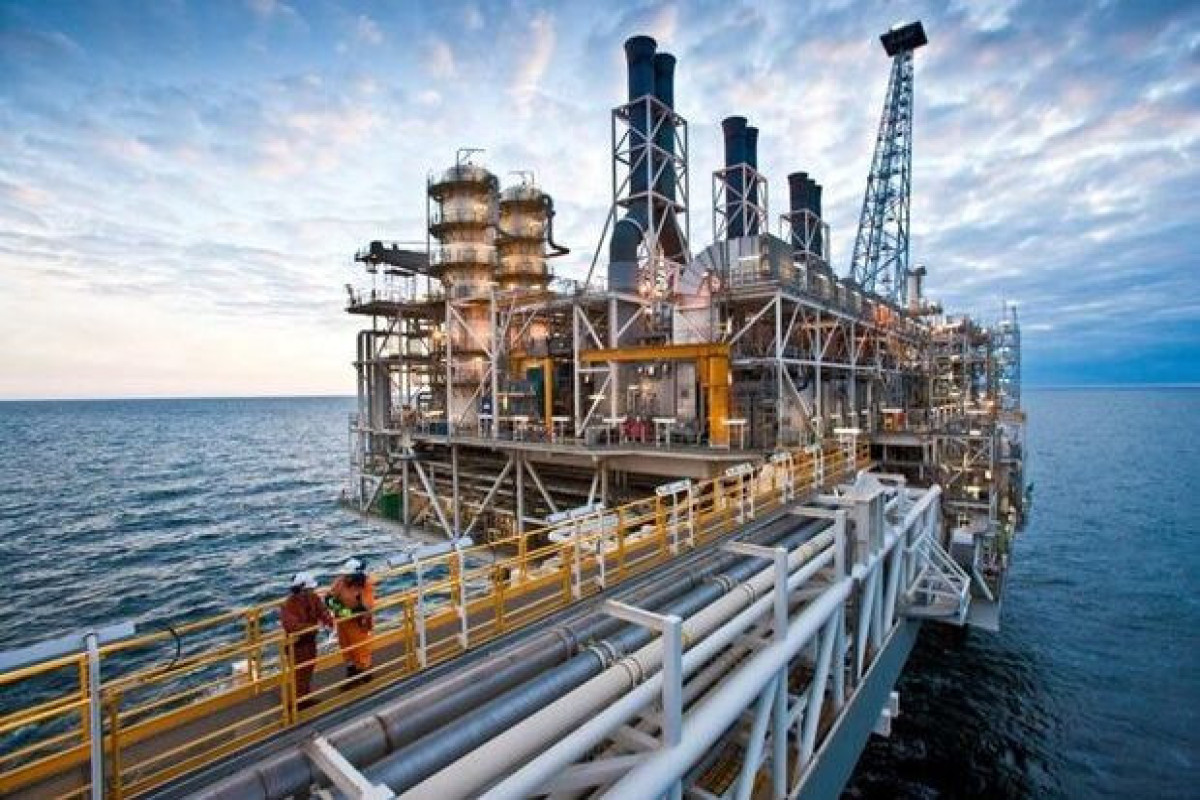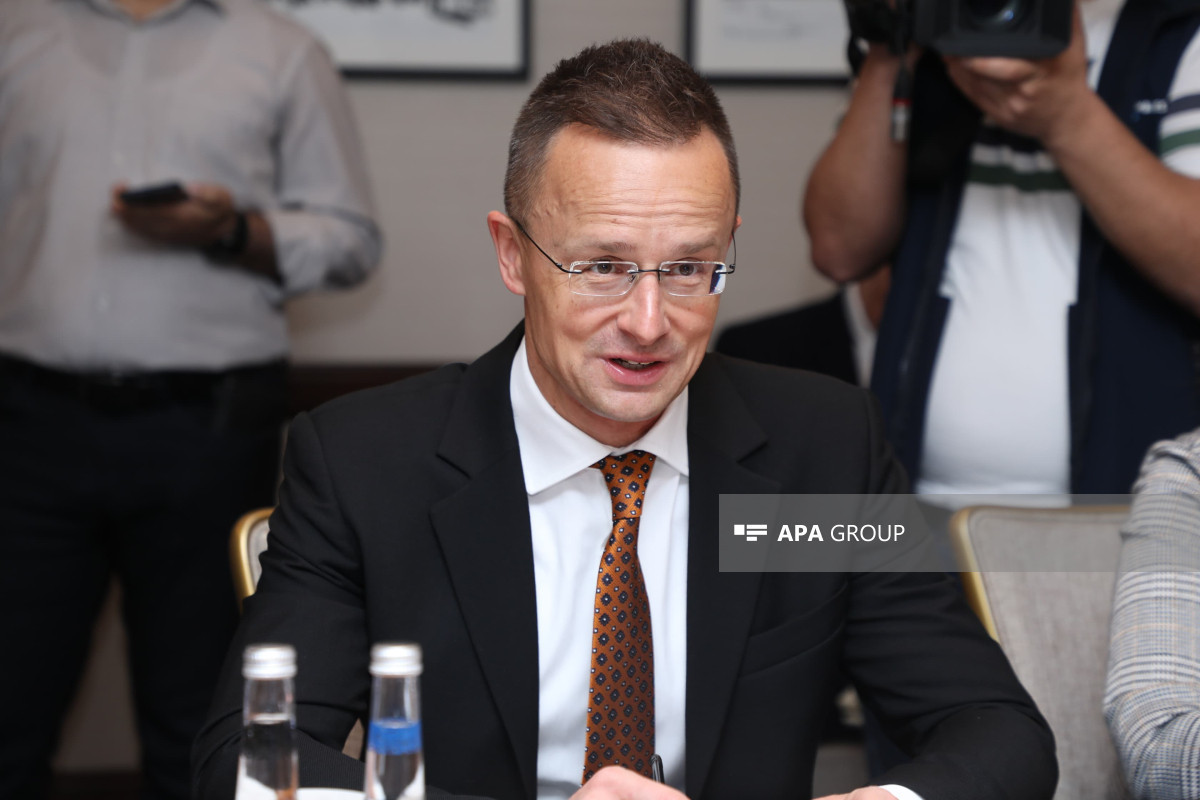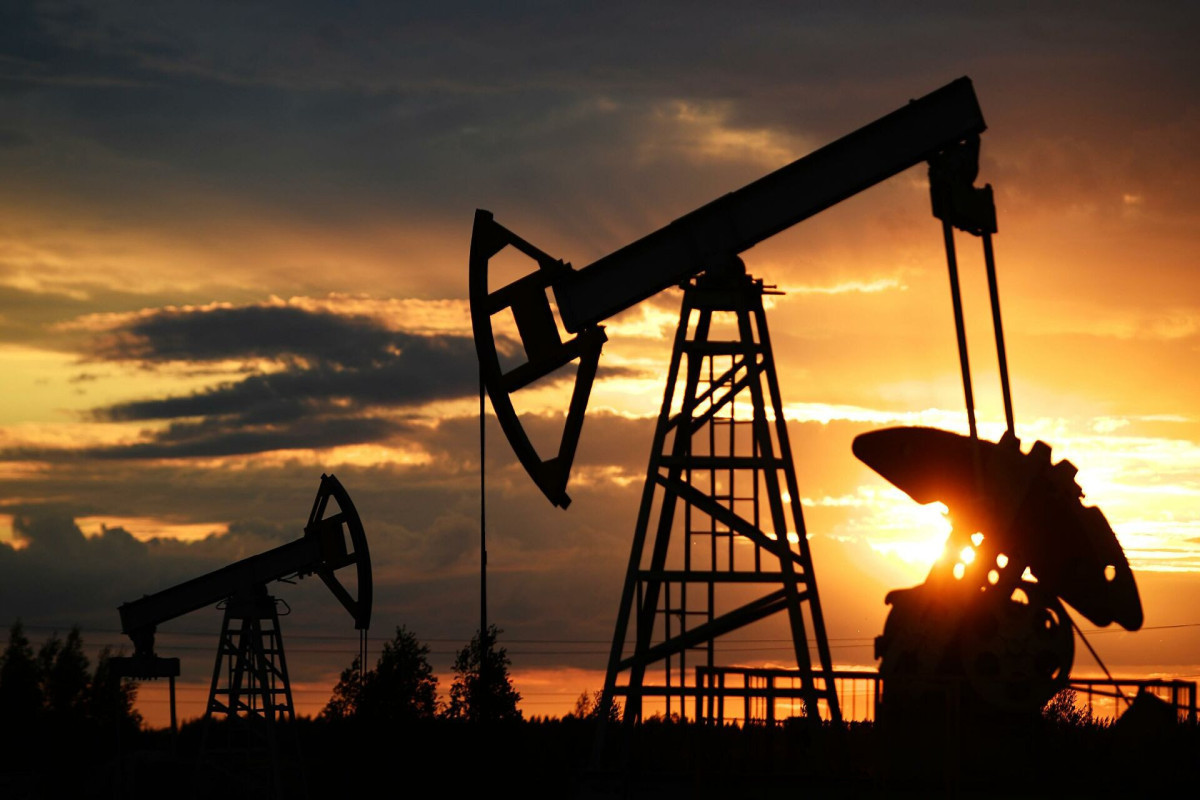Gas-OPEC: Dream or Reality? - ANALYSIS

Russia, Iran and Qatar made the first serious moves in October in Tehran toward forming an OPEC-style cartel on natural gas, raising concerns that Moscow could boost its influence over energy markets spanning from Europe to South Asia.
The Russian gas export monopoly Gazprom said it had agreed with Iran and Qatar to form a "big gas troika" and that it should become a permanent body holding regular meetings.
"There is a demand to form this gas OPEC and there is a consensus to set up gas OPEC," Oil Minister of Iran Gholamhossein Nozari in a joint news conference after talks with Gazprom’s chief executive Alexei Miller and Energy Minister of Qatar Abdullah al-Attiyah.
Russia, Iran and Qatar are ranked the first-, second- and third-biggest holders of natural gas reserves in the world and together boast more than half of the global total.
"We have agreed to hold regular - three or four times per year - meetings of the ’big gas troika’ to discuss key issues of gas market developments," Miller said in a statement issued in Moscow.
Miller said the new body would "review projects and implement joint projects. This will range from exploration, refining, and selling gas."
With its charter adopted and headquarters located during December high-level meeting in Moscow, the Gas Exporting Countries Forum (GECF) has been apparently evolving towards a formal organization that Russian leadership has proposed but some others worried.
The forum, whose creation dates back to 2001, groups Algeria, Bolivia, Brunei, Egypt, Indonesia, Iran, Libya, Malaysia, Nigeria, Qatar, Russia, Trinidad and Tobago, the United Arab Emirates and Venezuela, which account for some 73 percent of the world’s gas reserves and 43 percent of production.
Equatorial Guinea became a full member of the forum at the meeting, while Kazakhstan was granted observer status. Norway also attended the meeting as an observer.
As stipulated in the charter, an executive office and a Doha- based secretariat of the organization will be established, with a secretary general to be elected during the next forum.
The charter also includes provisions on information exchange, investment coordination and joint research on market, but put no obligation on price to its members.
In fact, oil is a global commodity, but natural gas is not. When it is piped, prices are set as far as 15 to 20 years in advance through long-term contracts. However, liquid natural gas (LNG) is rapidly becoming a worldwide commodity.
By 2010, LNG’s share of the world’s total gas consumption will double. Thus, price gouging through production quota manipulation may come faster than many experts expect if the GECF becomes a new OPEC and if consumer nations do not unite and flex their muscle.
So far, it has not been possible to coordinate the activities of gas-exporting countries. The point is that, there is no such thing in the world as a single gas market. Producers and consumers are interlinked through pipelines. Gas deliveries are carried out on the basis of long-term contracts.
The gas price formula is based on the prices of the crude oil basket and petroleum products for 9 months. Natural gas is always sold cheaper than oil. According to the Forum, one of the main goals of cooperation in the gas market is to analyze the demand and supply to maintain balance and a “fair priceâ€.
Russian energy minister Sergei Shmatko said the parties have agreed on four priorities – mutual relations, exchange of information on forecasts and investment programs, introduction of new technologies, and cooperation in liquefied gas activities.
European Commission energy spokesman Ferran Tarradellas said "In principle, the Commission is against cartels for the sale and marketing of products, and hydrocarbons are no exception to that. We believe the best conditions for the sale of a product such as gas are a free and transparent market."
The Bush Administration barely reacted to the Doha meeting. Ileana Ros-Lehtinen (R–FL), Ranking Member of the House Foreign Affairs Committee, wrote to the Secretary of State that the establishment of a gas OPEC would be a "major and long-term threat to the world energy supply" which the U.S. should "vigorously oppose." Officials express grave concern, but only in private.
OPEC President and Algerian oil minister Chakib Khelil explained the difference between two OPECs, saying: "Really, it is different. The OPEC of oil looks at today. For gas, today is already there. Gas is sold for the next 10-15 years. Basically, the forum will be a forward-looking forum and how members can protect their interests in the long term, in terms of getting the best price they can get for the product to ensure that gas is competitive with other products such as gasoil, fuel oil, nuclear power and solar energy," he added.
There emerged some initial disagreements at the beginning too. The ministers chose Doha, the capital of the Gulf nation of Qatar, as home for the headquarters, in a secret vote despite a strong push by Vladimir Putin in favor of St. Petersburg. Also, Europe intends to reduce its dependence on Russia by buying liquefied gas (LNG) from Qatar. Qatar also plans to boost gas exports to Europe.
Qatar ships liquefied gas by tankers and Russia pumps its natural gas via pipelines to Europe. Iran does not have an infrastructure developed enough to ship gas outside of the country.
Iran sits atop the world’s second-largest natural gas reserves after Russia, but international sanctions imposed on Tehran over its disputed nuclear activities and other issues have slowed development of its own gas exports. Iran relies on Russia to solve these problems.
Won numerous contracts from customers, Russia is of course unable to meet the high demand only through its own resources. Unlike the U.S. and Europe, Russia has maintained fairly good relations with Iran and is therefore interested in the joint development of gas fields in the Islamic country. But how far is Russia prepared to confront the West? How effective will the “Gas-OPEC†be? The future will only answer these questions…..
P.S. From early 2009 on, gas war between Ukraine and Russia flared again. It has been a bad time to pick a fight, with both Russia and Ukraine in dire economic shape and the affected countries in Europe in the midst of the coldest winter for a decade. The 10-day war has been a lose-lose situation.
Because of price and non-payment, Russia cut off supply to Ukraine and reduced gas shipments to Europe via Ukraine. Russia’s Gazprom and Ukraine’s Naftogaz failed to reach compromise over the gas and transit prices for a new contract in 2009, and over the size of gas debts owed by Ukraine.
The protracted gas dispute between Russia and Ukraine further deteriorated after Russian energy giant Gazprom shut off all gas supplies to countries in Europe, which gets about 80% of Russian gas via pipelines through Ukraine.
The dispute has already spread further and lasted longer than a similar conflict in 2006 which interrupted shipments to Europe.
Russia accused Ukraine of siphoning off Russian gas bound for destination countries but Ukraine said Russia had deliberately cut the flow of gas to Europe.
Meanwhile, Gazprom signed an agreement to buy Turkmen gas at market prices. Thus, on the one hand, Russia has prompted Turkmenistan to send large quantities of gas through its territory, on the other hand, has gained an additional advantage in the price dispute with Ukraine.
Thus, in 2009, the gas game is not over. In such circumstances, the West is weighing up the sources of the energy security.
Asif Aziz, APA-Economics
The Russian gas export monopoly Gazprom said it had agreed with Iran and Qatar to form a "big gas troika" and that it should become a permanent body holding regular meetings.
"There is a demand to form this gas OPEC and there is a consensus to set up gas OPEC," Oil Minister of Iran Gholamhossein Nozari in a joint news conference after talks with Gazprom’s chief executive Alexei Miller and Energy Minister of Qatar Abdullah al-Attiyah.
Russia, Iran and Qatar are ranked the first-, second- and third-biggest holders of natural gas reserves in the world and together boast more than half of the global total.
"We have agreed to hold regular - three or four times per year - meetings of the ’big gas troika’ to discuss key issues of gas market developments," Miller said in a statement issued in Moscow.
Miller said the new body would "review projects and implement joint projects. This will range from exploration, refining, and selling gas."
With its charter adopted and headquarters located during December high-level meeting in Moscow, the Gas Exporting Countries Forum (GECF) has been apparently evolving towards a formal organization that Russian leadership has proposed but some others worried.
The forum, whose creation dates back to 2001, groups Algeria, Bolivia, Brunei, Egypt, Indonesia, Iran, Libya, Malaysia, Nigeria, Qatar, Russia, Trinidad and Tobago, the United Arab Emirates and Venezuela, which account for some 73 percent of the world’s gas reserves and 43 percent of production.
Equatorial Guinea became a full member of the forum at the meeting, while Kazakhstan was granted observer status. Norway also attended the meeting as an observer.
As stipulated in the charter, an executive office and a Doha- based secretariat of the organization will be established, with a secretary general to be elected during the next forum.
The charter also includes provisions on information exchange, investment coordination and joint research on market, but put no obligation on price to its members.
In fact, oil is a global commodity, but natural gas is not. When it is piped, prices are set as far as 15 to 20 years in advance through long-term contracts. However, liquid natural gas (LNG) is rapidly becoming a worldwide commodity.
By 2010, LNG’s share of the world’s total gas consumption will double. Thus, price gouging through production quota manipulation may come faster than many experts expect if the GECF becomes a new OPEC and if consumer nations do not unite and flex their muscle.
So far, it has not been possible to coordinate the activities of gas-exporting countries. The point is that, there is no such thing in the world as a single gas market. Producers and consumers are interlinked through pipelines. Gas deliveries are carried out on the basis of long-term contracts.
The gas price formula is based on the prices of the crude oil basket and petroleum products for 9 months. Natural gas is always sold cheaper than oil. According to the Forum, one of the main goals of cooperation in the gas market is to analyze the demand and supply to maintain balance and a “fair priceâ€.
Russian energy minister Sergei Shmatko said the parties have agreed on four priorities – mutual relations, exchange of information on forecasts and investment programs, introduction of new technologies, and cooperation in liquefied gas activities.
European Commission energy spokesman Ferran Tarradellas said "In principle, the Commission is against cartels for the sale and marketing of products, and hydrocarbons are no exception to that. We believe the best conditions for the sale of a product such as gas are a free and transparent market."
The Bush Administration barely reacted to the Doha meeting. Ileana Ros-Lehtinen (R–FL), Ranking Member of the House Foreign Affairs Committee, wrote to the Secretary of State that the establishment of a gas OPEC would be a "major and long-term threat to the world energy supply" which the U.S. should "vigorously oppose." Officials express grave concern, but only in private.
OPEC President and Algerian oil minister Chakib Khelil explained the difference between two OPECs, saying: "Really, it is different. The OPEC of oil looks at today. For gas, today is already there. Gas is sold for the next 10-15 years. Basically, the forum will be a forward-looking forum and how members can protect their interests in the long term, in terms of getting the best price they can get for the product to ensure that gas is competitive with other products such as gasoil, fuel oil, nuclear power and solar energy," he added.
There emerged some initial disagreements at the beginning too. The ministers chose Doha, the capital of the Gulf nation of Qatar, as home for the headquarters, in a secret vote despite a strong push by Vladimir Putin in favor of St. Petersburg. Also, Europe intends to reduce its dependence on Russia by buying liquefied gas (LNG) from Qatar. Qatar also plans to boost gas exports to Europe.
Qatar ships liquefied gas by tankers and Russia pumps its natural gas via pipelines to Europe. Iran does not have an infrastructure developed enough to ship gas outside of the country.
Iran sits atop the world’s second-largest natural gas reserves after Russia, but international sanctions imposed on Tehran over its disputed nuclear activities and other issues have slowed development of its own gas exports. Iran relies on Russia to solve these problems.
Won numerous contracts from customers, Russia is of course unable to meet the high demand only through its own resources. Unlike the U.S. and Europe, Russia has maintained fairly good relations with Iran and is therefore interested in the joint development of gas fields in the Islamic country. But how far is Russia prepared to confront the West? How effective will the “Gas-OPEC†be? The future will only answer these questions…..
P.S. From early 2009 on, gas war between Ukraine and Russia flared again. It has been a bad time to pick a fight, with both Russia and Ukraine in dire economic shape and the affected countries in Europe in the midst of the coldest winter for a decade. The 10-day war has been a lose-lose situation.
Because of price and non-payment, Russia cut off supply to Ukraine and reduced gas shipments to Europe via Ukraine. Russia’s Gazprom and Ukraine’s Naftogaz failed to reach compromise over the gas and transit prices for a new contract in 2009, and over the size of gas debts owed by Ukraine.
The protracted gas dispute between Russia and Ukraine further deteriorated after Russian energy giant Gazprom shut off all gas supplies to countries in Europe, which gets about 80% of Russian gas via pipelines through Ukraine.
The dispute has already spread further and lasted longer than a similar conflict in 2006 which interrupted shipments to Europe.
Russia accused Ukraine of siphoning off Russian gas bound for destination countries but Ukraine said Russia had deliberately cut the flow of gas to Europe.
Meanwhile, Gazprom signed an agreement to buy Turkmen gas at market prices. Thus, on the one hand, Russia has prompted Turkmenistan to send large quantities of gas through its territory, on the other hand, has gained an additional advantage in the price dispute with Ukraine.
Thus, in 2009, the gas game is not over. In such circumstances, the West is weighing up the sources of the energy security.
Asif Aziz, APA-Economics





